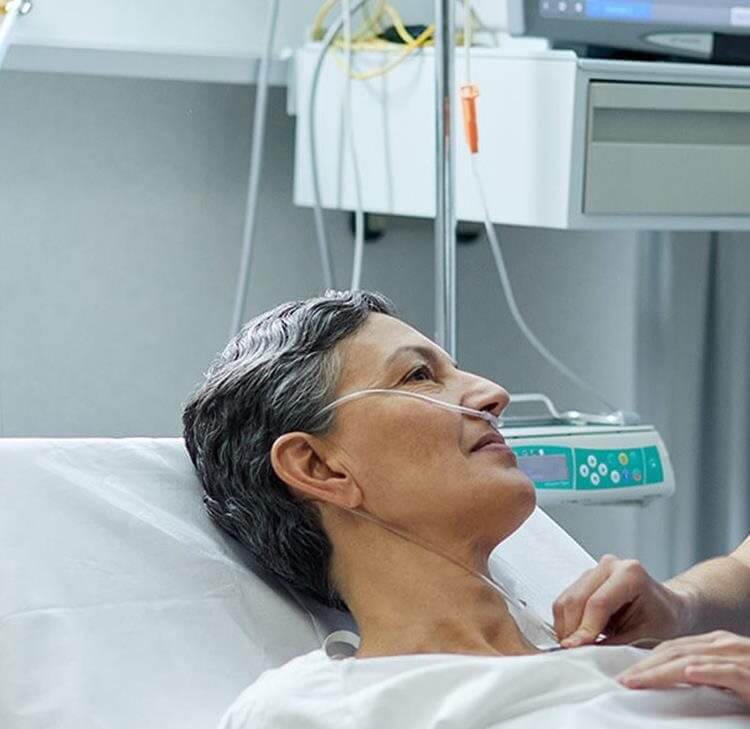'Broken trust: making patient safety more than just a promise', published by the Parliamentary and Health Ombudsman Service (PHSO) on 29 June 2023, highlights that despite significant developments in patient safety over the last decade, there remains a gap between ambitious patient safety objectives and effective learning within a just and learning culture to prevent harm. The report also demonstrates the adverse impact that poor quality investigations and complaint responses can have on patients and their families in the aftermath of harm and how NHS organisations can make tangible improvements in this area.
Summary of findings
The PHSO undertook a detailed analysis of 22 NHS complaint investigations where it found a death was, more likely than not, avoidable and found four broad themes of clinical failings leading to avoidable death, namely:
- failures to make the right diagnosis.
- delays in providing treatment.
- poor handovers between clinicians.
- failure to listen to the concerns of patients or their families.
Secondly, the analysis showed that the physical harm experienced by patients was too often made worse by ‘inadequate, defensive and insensitive responses’ from NHS organisations when concerns were raised. Several factors contributed to the further distress (known as compounded harm) that can be caused by poor quality investigations and responses:
- a failure to be honest when things go wrong, including failures to comply with the duty of candour.
- a lack of support for patients and families to navigate systems after an incident.
- poor-quality investigations with examples or organisations failing to undertake thorough investigations and/or accept errors or the extent of what has happened and its impact.
- a failure to respond to complaints in a timely and compassionate way with examples of complaint response letters containing inaccurate and/or contradictory information.
- inadequate apologies.
- unsatisfactory learning responses.
Changes to patient safety incident response under the Patient Safety Incident Response Framework (PSIRF)
The PHSO report comes at a time of significant change for the way in which NHS Trusts respond to patient safety incidents with the transition to the PSIRF which, once fully implemented, will replace the Serious Incident Framework (2015). Giving Trusts more autonomy to decide when a Patient Safety Incident Investigation (PSII) is needed, the PSIRF prompts a move away from a reactive and bureaucratic approach to incident investigation to a more proactive approach to learning and responding to harm.
Much has been written about the positive changes and improvements to learning that the PSIRF will bring about. The PHSO tempers this positivity, flagging caution about the need for accountability and monitoring of the new framework, stating that "it holds great promise but needs to be accompanied by sufficient monitoring and better support for families".
Specifically, the PHSO flags that the additional flexibility the PSIRF offers (enabling individual organisations to determine which incidents to investigate), brings a risk that Trusts with poor cultures may not carry out safety incident investigations when they should.
Recommendations
Recognising the complexity of the healthcare system and the fragmentation of the patient safety landscape, the PHSO makes it clear that another patient safety body or initiative is not what is needed. Instead, it calls for a streamlined system that works together, with real leadership from Government with recommendations which focus on two areas:
1. Accountability for a robust and compassionate response to harm, which supports learning for systems and healing for families
- Integrated care boards, with oversight from NHS England, should closely monitor the impact of the PSIRF, paying special attention to the balance of patient safety investigations versus other learning responses in Trusts (or service areas of a Trust) where there are poor CQC ratings for safety and leadership, or where other national bodies have raised concerns (recommendation 1).
- The PSIRF executive lead on each Board should look at any discrepancies between local and PHSO investigations, or other independent investigations, and make sure the Board discusses them (recommendation 2).
- The Department of Health and Social Care and NHS England should further scrutinise the lack of compliance with duty of candour. They should review the operation of duty of candour to assess its effectiveness and make recommendations for improvement (recommendation 3).
- The Department of Health and Social Care should commit to funding further independent advocacy to support harmed patients, families and carers when they raise concerns or seek answers after an incident (recommendation 4)
2. Evidencing that patient safety is a top Government and NHS priority
- The Department of Health and Social Care should commission an independent review of what an effective set of patient safety oversight bodies would look like. The review must include meaningful engagement with NHS leaders, staff, patients and families (recommendation 5).
- The Government should seek cross-party support for commitments to embedding patient safety and the culture and leadership needed to support it as a long-term priority (recommendation 6).
- The Government should urgently produce its long-awaited long-term workforce strategy, with cross-party support, to increase the numbers entering and staying in the workforce across clinical and non-clinical roles (in fact, a day after the publication of the PHSO report, the NHS long-term workforce plan was published) (recommendation 7).
Comment
The findings set out in 'Broken trust: making patient safety more than just a promise' do not reveal any new themes but the report does highlight the disconnect between best practice policy and the reality of front-line practice. With the imminent implementation of the PSIRF and considerable activity underway to change the way NHS Trusts approach incident investigation, the report is a reminder of the ongoing challenges to improving learning where the people and complex systems that make up the NHS are under significant and growing pressure.
To this end, the PHSO report makes it clear that the PSIRF is not a silver bullet. Achieving a culture of candour remains at the heart of success and yet the PHSO found recent examples of poor complaint responses, inadequate apologies and shortcomings in implementing the duty of candour. These are all areas where Trusts (and other healthcare organisations) can make significant improvement by supporting front line staff to understand not only the legal obligations but also the impact of engaging with patients and their families in a timely and sensitive way and providing written responses which are easy to understand and compassionate in tone.
There are various resources available for organisations to support staff in this area including the NHS Resolution duty of candour animation and Saying Sorry guidance, which makes it clear that saying sorry is not an admission of liability.
Our specialist organisational learning team delivers training on duty of candour (achieving a culture of candour) and resolving complaints to support the early resolution of complaints in an effective and compassionate way. We have also developed a number of resources to support Trusts with the transition to the PSIRF which may be of interest to you:
Shared Insights: The Patient Safety Incident Response Framework
Shared Insights: PSIRF and what it means for Independent Providers
PSIRF support and training packages
Please contact us if you would like to discuss how we can support your organisation.
Contact

Amelia Newbold
Risk Management Lead
Amelia.Newbold@brownejacobson.com
+44 (0)115 908 4856




![Contractual liability for all inclusive treatment: Bartolomucci v Circle Health Group Limited [2025]](/getattachment/95f9533b-f99c-4fcc-b8d5-3f93904b8242/shutterstock_1265400856.jpg?variant=HeroImageTabletVariantDefinition)



































